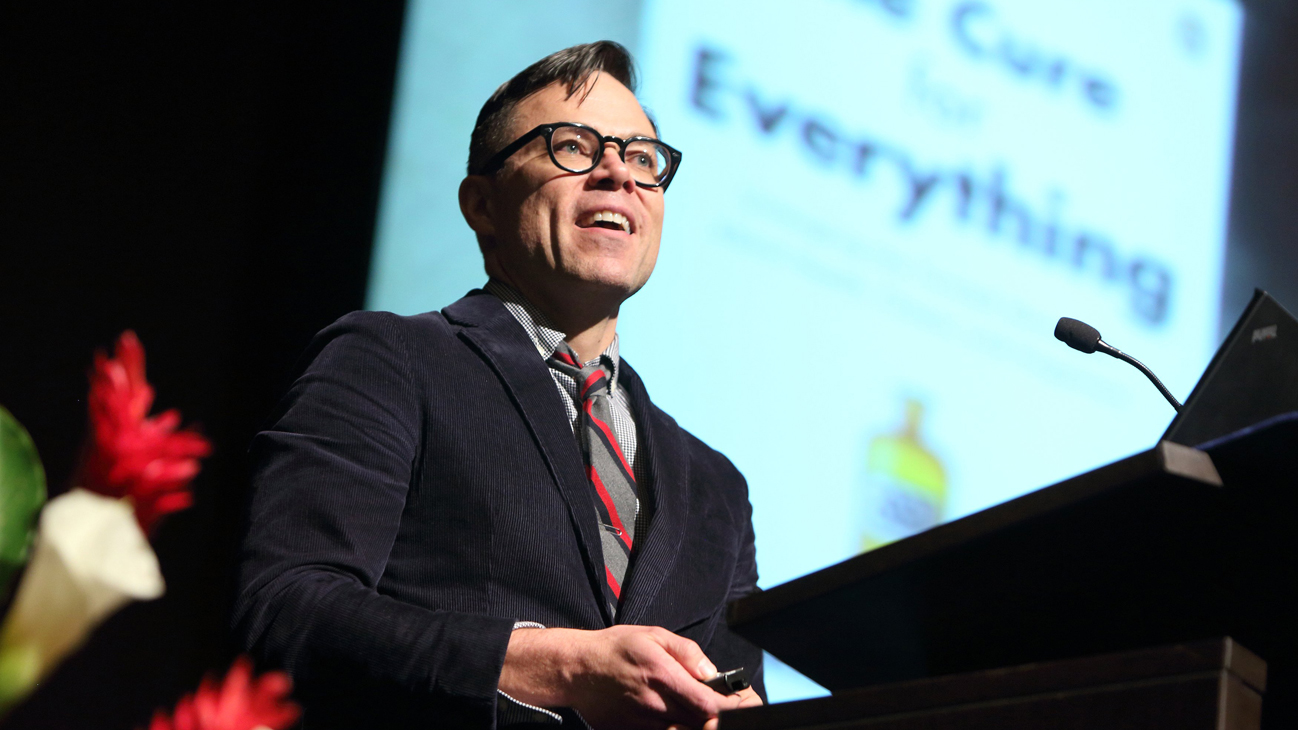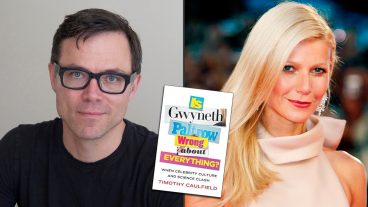A Canada Research Chair in Health Law and Policy and a Professor at the University of Alberta, Timothy Caulfield is known for debunking myths and assumptions about innovation in the health sector, from diets to alternative healthcare to celebrity culture.
In a recent article for Think, NBC News’ home for fresh opinion, sharp analysis, and powerful essays, he takes on the multivitamin industry, which is predicted to have a global worth of almost $300 billion by 2024. It is estimated that more than half of all Americans take some form of vitamin or supplement, with that percentage increasing to 70 per cent for older Americans. If this is the case, Professor Caulfield asks, why aren’t we getting any healthier?
He writes:
In reality, there is very little evidence to support the consumption of vitamins and supplements. Studies have consistently found, for example, that multivitamins provide no clear health benefit. There is little evidence to support the use of most supplements in the context of sports, even for high-performance athletes. A 2018 systematic review from Canada found that “conclusive evidence for the benefit of any supplement across all dietary backgrounds… was not demonstrated” and that, for some supplements, there were real risks that should be considered.
Vitamins also do not work as an insurance policy against a poor diet. As nicely summarized in an editorial in the Annals of Internal Medicine — aptly titled “Enough Is Enough: Stop Wasting Money on Vitamin and Mineral Supplements” — “most supplements do not prevent chronic disease or death, their use is not justified, and they should be avoided.”
So why is this industry booming? Professor Caulfield writes:
While the social forces that brought us to this odd, pill-popping place are undoubtedly complex — see, for example, Catherine Price’s terrific “Vitamania” — part of the problem is the degree to which media representations are absent critical analysis. Unchallenged claims of benefit are absolutely everywhere, often riffing on the idea that supplements are a natural way to promote health. (How or why taking a pill or getting an injection or a rectal infusion is “natural” has never been clear to me.)
Alternative practitioners, such as naturopaths and “holistic” nutritionists (whatever that is), push supplements precisely because they fit the general natural-is-good gestalt of their practice (and, of course, because they can charge for them). Is it a surprise that the vitamin industry has helped to fund the lobbying of governments by naturopaths’ for regulatory recognition and funding by Medicare?
And, of course, celebrities also help keep the supplement and vitamin craze alive. For example, many have vocally embraced the idea that we should get hooked up to an IV vitamin drip. Indeed, without endorsements by people like Rihanna, Madonna, Gwyneth Paltrow and Simon Cowell, it seems unlikely that this science-free and potentially harmful health trend would have taken off.
To be clear, I’m not saying vitamins and supplements are always useless. For some populations, they are clearly beneficial (e.g., pregnant women). And interesting research and public health debates continue on the value of things like vitamin D supplementation. My point is that the existing evidence simply does not support our current love affair with supplements.
Ignore the supplement noise. More is not always better. Get the nutrients you need from the food that you eat. So, in summary: Apple, yes. Rectal vitamin infusion, no.
Read the whole article here.
Professor Timothy Caulfield is a Canada Research Chair in Health Law and Policy, and a professor in the Faculty of Law and the School of Public Health at the University of Alberta. He is also the host of “A User’s Guide to Cheating Death” coming soon to Netflix.
In his engaging and humorous talks, Professor Caulfield examines what science tells us about the influence of popular culture, and debunks common health myths while providing practical, evidence-based recommendations relevant to both healthcare professionals and individuals seeking to live a healthy lifestyle.
Interested in learning more about Professor Caulfield and what he can bring to your next event? Email us at [email protected].




